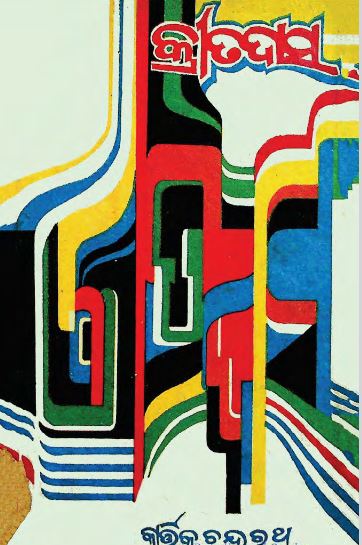Kritadasa, published in 1977 by the renowned playwright Karttik Chandra Rath, is a noteworthy contribution to the Odia literary landscape, particularly in the realm of drama. As a platform for exploring complex themes of human emotion, social dynamics, and moral dilemmas, Rath’s work stands out not only for its engaging narrative but also for its intricate character development and rich cultural context.
At the heart of Kritadasa is the titular character, a historically significant figure whose life journey encapsulates the essence of devotion, loyalty, and personal sacrifice. The play is set against the backdrop of ancient Indian society, exploring the intersection of personal relationships and societal expectations. Through the lens of Kritadasa’s experiences, Rath delves into themes of dharma (duty), emotional conflict, and the pursuit of righteousness, which are prevalent throughout the text.
The narrative is both poignant and compelling, illustrating Kritadasa’s unwavering dedication to his master, even in the face of personal challenges and societal pressures. The playwright’s ability to immerse readers in the character’s internal struggles and aspirations allows for a profound exploration of the human condition, resonating with audiences across time and cultures. Rath’s dialogue is layered with poetic finesse, enhancing the emotional weight of the story while making it accessible and relatable to a diverse readership.
One of the notable aspects of the drama is its sub-drama titled “Masani Manisa,” which weaves seamlessly into the fabric of the main narrative. “Masani Manisa” reflects the societal customs and traditions of the time, further enriching the thematic depth of the play. The sub-drama focuses on the character of Masani, who embodies both resilience and vulnerability, representing the plight of women in a patriarchal society. Through her story, Rath critiques social norms while highlighting the strength and resourcefulness of women amidst adversity.
In “Kritadasa,” Karttik Chandra Rath adeptly incorporates elements of satire and humor, providing respite from the heavier themes explored within the plot. This blend of light and serious moments creates a dynamic and engaging experience for the audience, encouraging them to reflect on the societal values portrayed in the play. The contrasting experiences of the characters serve to illuminate the complexities of human relationships and the moral quandaries individuals often face when navigating their duties to family, society, and the self.
Rath’s work is significant not only for its content but also for its contribution to the development of Odia theater. It reflects the cultural richness of Odisha and showcases the playwright’s deep understanding of regional history and social issues. “Kritadasa” is more than just a historical drama; it serves as a mirror reflecting the socio-cultural realities of its time while prompting discussions on timeless themes of loyalty, sacrifice, and the search for identity.
Furthermore, the play’s enduring relevance continues to inspire contemporary audiences and performers, making “Kritadasa” a staple in the repertoire of Odia theater. Karttik Chandra Rath’s talent for storytelling, combined with his insightful commentary on human behavior, ensures that “Kritadasa” remains a beloved and critically acclaimed work within the Odia literary canon.
In conclusion, Kritadasa stands as a testament to Karttik Chandra Rath’s artistic vision and the rich tradition of Odia drama, inviting readers and audiences alike to reflect on the moral complexities of life through the lens of compelling narrative and character depth.
Books Info
| Books name | Kritadasa |
| Author | Karttik Chandra Rath |
| No Of pages | 113 |
| Publisher | Cuttack Student’s Store |
| Publication | 1977 |
| Printed At | Satyabrata Press |
| Distributor | NA |

